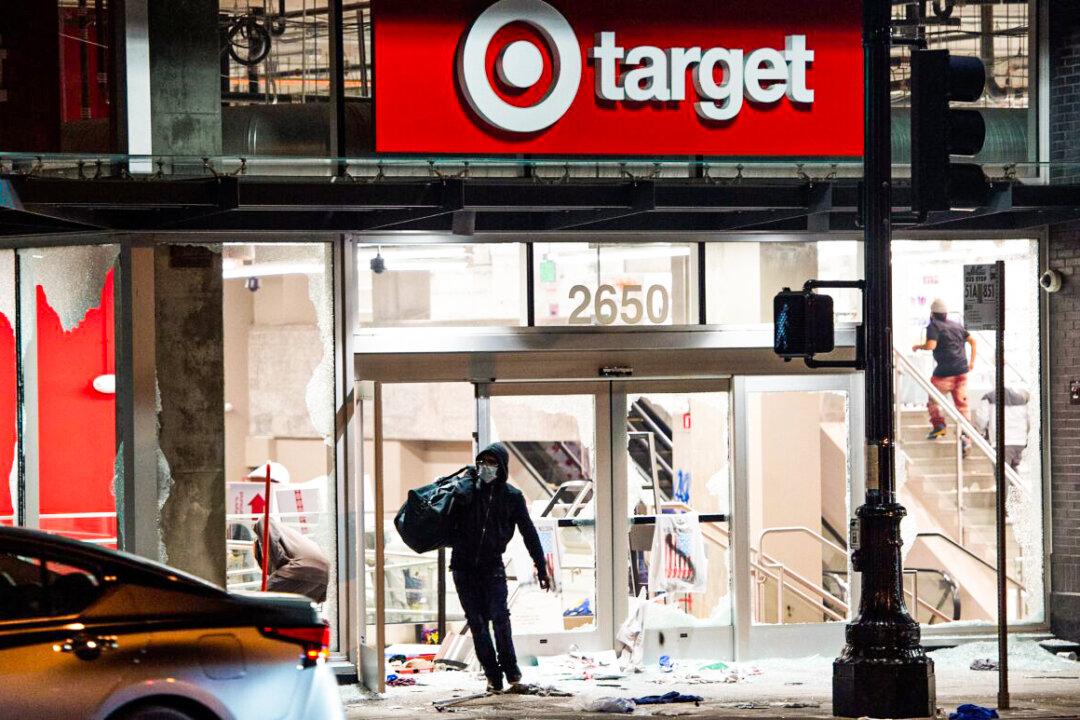Security is being boosted in retail outlets across the country this holiday shopping season, as stores and law enforcement face a pandemic of organized retail crime by smash and grab mobs.
Major stores like Home Depot, CVS, Target, and Best Buy have been some of the worse afflicted by the “flash mob” raids, which have increased in scope and in size in recent weeks.





